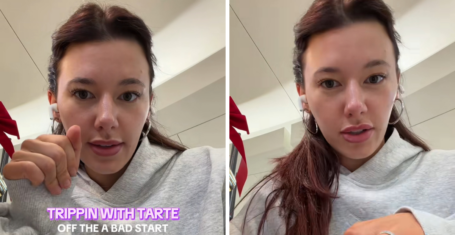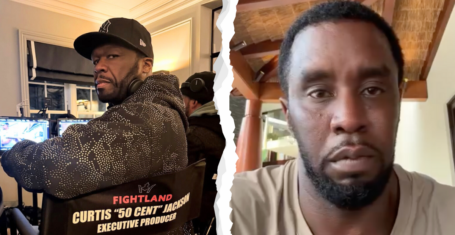
How to get an Oxbridge offer, by state schoolers who have done it
Moving social barriers one at a time – let’s show the Etonians how it’s done
Applying to university at the ripe old age of 17 can seem like the most daunting thing in the world, especially when you’re faced with navigating the Oxbridge application process. It’s even worse coming from a state school, knowing that you’re trying to worm your way into a system that was not designed for you. The people it was designed for have been training for years. Your dreams are in the balance, and the odds are not in your favour. Fun, right?
But do not despair – Oxford and Cambridge, as well as plenty of other Russell Group Universities, are actively working on improving accessibility for state school students, with more being admitted every year. So if you dream of Oxbridge, please do not let this archaic social barrier get in your way – who cares about the status quo? Apply anyway! My friends and I have never stepped foot in a private school, but we’re now in our third year at Cambridge. State school to Oxbridge? Completed it, mate.
Here’s how to get an offer and achieve Oxbridge success, from the state school students who have done it:
Choose between Ox and Bridge
Before you can get an Oxbridge offer, whether you’ve gone to state or private school you need to know which you want to apply to. Unfortunately, you’re not allowed to apply to both Oxford and Cambridge, so before you start thinking about your application, decide which one you actually want to go to. While the two are undeniably similar, they offer different degrees and have different vibes.
Check which one has the course you’re most interested in, and if you get the chance, visit both cities to decide which one you’d like to live in for three years.
Most Read
Make sure that you would genuinely enjoy going to Oxbridge at all! Yes they’re old, yes they’re pretty, and yes they have excellent reputations, but that doesn’t mean you’ll be happy there. Lots of people apply because it’s “the smart person thing to do,” instead of actually wanting to. If you’d rather go somewhere else, then be honest with yourself.
Understand the entrance requirements
Once you’ve settled on a university and a course, find out what the entrance requirements are. If you’re on track to get AAB for your A-Levels, but the course only considers applicants with A*AA, then hope is not lost, you still have time to keep striving for the grades you need! Keep working and don’t give up.

Image credits: Keira Quirk
Choose a college
Oxford and Cambridge are unique in that you don’t apply to the university or a department, but to a college. In Oxford’s case, you get considered by a few colleges, so be prepared for multiple interviews.
It’s important to decide on a college early, as they have variations in their application processes. For example, when I applied to St. John’s College for physics, I had to do an extra entrance exam that other colleges wouldn’t have made me do (I chose to make life harder for myself for some reason?). Make sure you do enough research that you don’t get caught off-guard by any secret exams.
Understand the application process well in advance
There’s more to the Oxbridge application process than the infamous interviews, so make sure you understand the process for your specific course and college. The general process is:
- Submitting your UCAS application (by 15th October)
- Completing any entrance exams
- Receiving an invite to interview
- Going to the interview (and maybe doing another exam)
Super-curriculars: Academic extra-curriculars related to your subject
As well as showing off some stellar A-Levels, Oxbridge want to see that you actually care about the subject you’re applying for. The workload is intense, and you need to prove to the admissions officers that you have the enthusiasm to keep going and finish the entire course.
So, how do you convince them that you’re the biggest fan of [insert your subject here] the world has ever known? Easy – take part in as many super-curriculars as you can.
Go read a book. And another. And another. Watch a documentary. Get involved in an online course. Do an EPQ related to the degree you’re applying for. Take part in a competition, at school or otherwise (looking at you, UKMT). Attend outreach events for your subject. Listen to a podcast. Go to a public lecture at a local university. Join Cambridge’s HE+ programme. Attend summer schools (bonus points if they’re at Oxbridge). Get involved with relevant work experience. Enter an essay competition. Join a mentoring scheme and learn about other options from A Real Oxbridge Student™.
And read one more book just to be on the safe side.
Engage with whatever you can get your hands on. If your school doesn’t actively advertise opportunities to you, research them for yourself. By the end of year 12, you want to have so many things to write on your personal statement that you can’t fit it all in.

How to get an Oxbridge offer as a state school student? Better get cracking with the reading (Image credits: Gabriel Adler)
Smash out a banging personal statement
Now you have something to say, it’s time to say it. The personal statement is one of the most important parts of the application – it’s how universities get to know who you are beyond your exam results, so really let yourself shine. You only get 4,000 characters to use (about 600-700 words), so write concisely, and narrow down what it is you want to say.
A good guide is to use 10 per cent of your characters on extra-curriculars, 15 per cent on an introduction and conclusion, and 75 per cent on super-curriculars. Don’t just list the super-curriculars, discuss them in-depth, link them together, and evaluate what you gained from your experiences. For example, if you went to a summer school and found a lecture interesting, you could speak about a book you then read to find out more, highlighting something from it you enjoyed.
STEM statements should focus almost entirely on experiences you’ve had and how they developed your knowledge and skill set. Humanities statements are similar, but you should include a more direct focus on your own analysis. Admissions officers want to understand your views on the subject and how you interpret different pieces of literature. For example, you could discuss the works of a given author, assess the influence you think it’s had on the wider discipline and beyond, and how this has been expressed in other works.
Important: do not lie on your personal statement. You could get asked questions about it at the interview, and the interviewers will spot a lie from a mile off.
Get your teachers to read it
Believe me when I say that your first draft will be awful, and that’s okay! You don’t want the first people to catch all of your mistakes to be the admissions officers, so even if they don’t offer, ask your teachers, parents, siblings, or friends to read it for you. You want all of the constructive criticism you can get.

Image credits: Wikimedia Commons via Creative Commons License
Study for your entrance exams
If you have to take an entrance exam (sad), make the effort to go on the associated website and download the available past papers. Lots of the exams are time-pressured, and the only way to get quicker at them is to practice.
If you run out of past papers, studying your A-Level content is still always relevant and helpful.
Get literally anyone you know to interview you
The unfortunate truth of the world we live in is that some people get a leg up in life, and others don’t. This is very true of university interviews, as students in private schools get significantly more training than in state schools. This sucks, but more and more state school students are being admitted to Oxbridge every year, so you don’t have to just lie down and take it.
Ask as many teachers as you can to give you a mock interview, and even if most say no, keep persevering. Ask parents, relatives – anyone you can find. Even if the experience is dissimilar to a real Oxbridge interview, being able to practise discussing your subject in an interview environment can do wonders for your confidence on the day.
Study for the interviews
Your interview will usually involve assessing your understanding of content from your A-Levels, so make sure you’re comfortable with them.
Interview day
So you’ve got your interview, you’ve done all the preparation, and now you just need to stick the landing. Make sure you get enough sleep the night before – you don’t want to be an exhausted, caffeinated wreck during your big moment.
Key points to remember during the interview:
- Think out loud – the interviewers aren’t assessing how many questions you get right, they’re assessing what your thought process is when you answer the question, and they can only do that if you share your thought process with them.
- You are going to make mistakes, and that is okay. When it happens, stay calm and positive. Move on to the next question with a fresh slate.
- If you don’t understand what a question is asking, or you simply don’t know the answer – tell them. It’s better to communicate with the interviewers than to sit in silence.
- Fake it ’til you make it – everyone gets nervous for interviews, whatever they’re for. But one of the keys to doing well is pretending to be confident anyway.
You can find loads of YouTube videos of people speaking about their Oxford or Cambridge interview experiences, like these:
Offer day
It’s important to remember that if things don’t go the way you planned, life will go on.
Don’t get me wrong, Oxford and Cambridge are both great places, but there are so many other fantastic universities in the UK and beyond, that you aren’t limited by missing out on Oxbridge. Wherever you end up, you will still have an incredible university experience that will be some of the best days of your life.
To help me prepare for both scenarios, I made two playlists in advance to listen to on the way home from school, and I strongly recommend doing the same. One had “We Are The Champions,” and one did not. I’ll let you guess which was which. I wish you the very best of luck with your applications!
Feature image credits: Shengying Dai

















